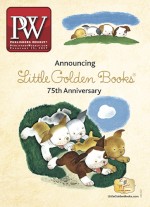Nothing intensifies book FOMO—fear of missing out on books—more than loading 11,000 books into a new store and spending a week sorting them.
Book FOMO is the nagging anxiety that you will never get to read all the books you want to read. As I unboxed the initial order for East City Bookshop, I began to feel sorry not just for myself but for the books. Would some of them languish unread forever?
I indulge my book pity by “rescuing” books from overstock and buying them myself. I recently sold a couch to make room for more bookshelves in my home, but this accommodation and accumulation has not soothed my book FOMO one bit. The more I read, the more panicked I become about not being able to read even more.
I decided to ask Emilie, our store’s book buyer, if she experiences book FOMO, and how she deals with it. For a recent summer reading challenge, she completed 39 books in three months. If I read at Emilie’s rate, I realized, I could read the entire store in about 109 years.
To my dismay, power reader Emilie does experience book FOMO. She told me that she “never want to miss out on any book that becomes a phenomenon.” She wants to have read it, and wants to have read it first. For her, she said, “reading something early means that I can develop the clearest, most honest reaction to the book.” She added, “Being a bookseller has increased this feeling a lot. For every book I finish, there is at least a handful of exciting others that I discover. This feeling can be daunting, but I’d rather experience that than ever feel like I’m in a book drought!”
I wish I could espouse Emilie’s cheery attitude, but instead I’ve only added to my fear with the worry that I won’t get to all the future books I want to read as well.
I think another part of my book FOMO stems from my own writing aspirations. As an author myself, I feel despair on behalf of all the unread books out there. Does being a bestselling author alleviate that fear-by-proxy of being overlooked and unread? I asked one of my favorite authors, Louis Bayard, if book FOMO haunted him. I thought I might find some perspective from an author whose most recent book, Lucky Strikes, was called a “near-perfect novel” by the New York Times.
Louis said of book FOMO: “I don’t know that I experience it as a fear so much as an incentive to go on living. I figure there are so many great books still out there to read that I have a built-in reason to stretch things out as long as I can.” He added,“Being an author—specifically, writing historicals—means I actually do less pleasure reading, I think, than ordinary readers because I’m always reading ‘in period.’ So while I might want to pick up the latest, oh, Jonathan Franzen or Joyce Carol Oates, I’m often stuck reading Frances Trollope and James Fenimore Cooper. I’m totally up on what was hot in 1848.”
At least I don’t feel as bad about not keeping up with hot new titles as Emilie does. But, despite my queries, I still hadn’t found a coping mechanism that made my own book FOMO more bearable.
Emilie admonished me, “Really, the only way to deal with book FOMO is to read as much as possible—a joyous solution.”
Louis, however, offered a different suggestion: “I remember someone saying that middle age is the point when you realize you’ll never read Proust. Having read Proust, I will replace it with Ulysses and Infinite Jest, neither of which I could get through and neither of which seems a good use of my remaining time.”
While Ulysses and Infinite Jest are both still on my list (and occasionally used to prop up tables), I felt like I was finally on to something. My way to beat book FOMO is through mindful not-reading. I won’t ever be able to read it all, so maybe I can skip Karl Knausgaard’s 3,600-page autobiographical novel series, My Struggle.
While I’ve spurned him, Knausgaard earned at least one new fan through our store: my former coworker Ania, who promptly and quietly devoured the entire series in about two weeks. If memory serves, she told me it was “deliciously banal.”
Hannah Sternberg is the events manager at East City Bookshop in Washington, D.C., and the author of the YA novels Queens of All the Earth (Bancroft) and Bulfinch (Istoria).



 Volume 264
Issue 07
02/13/2017
Volume 264
Issue 07
02/13/2017





